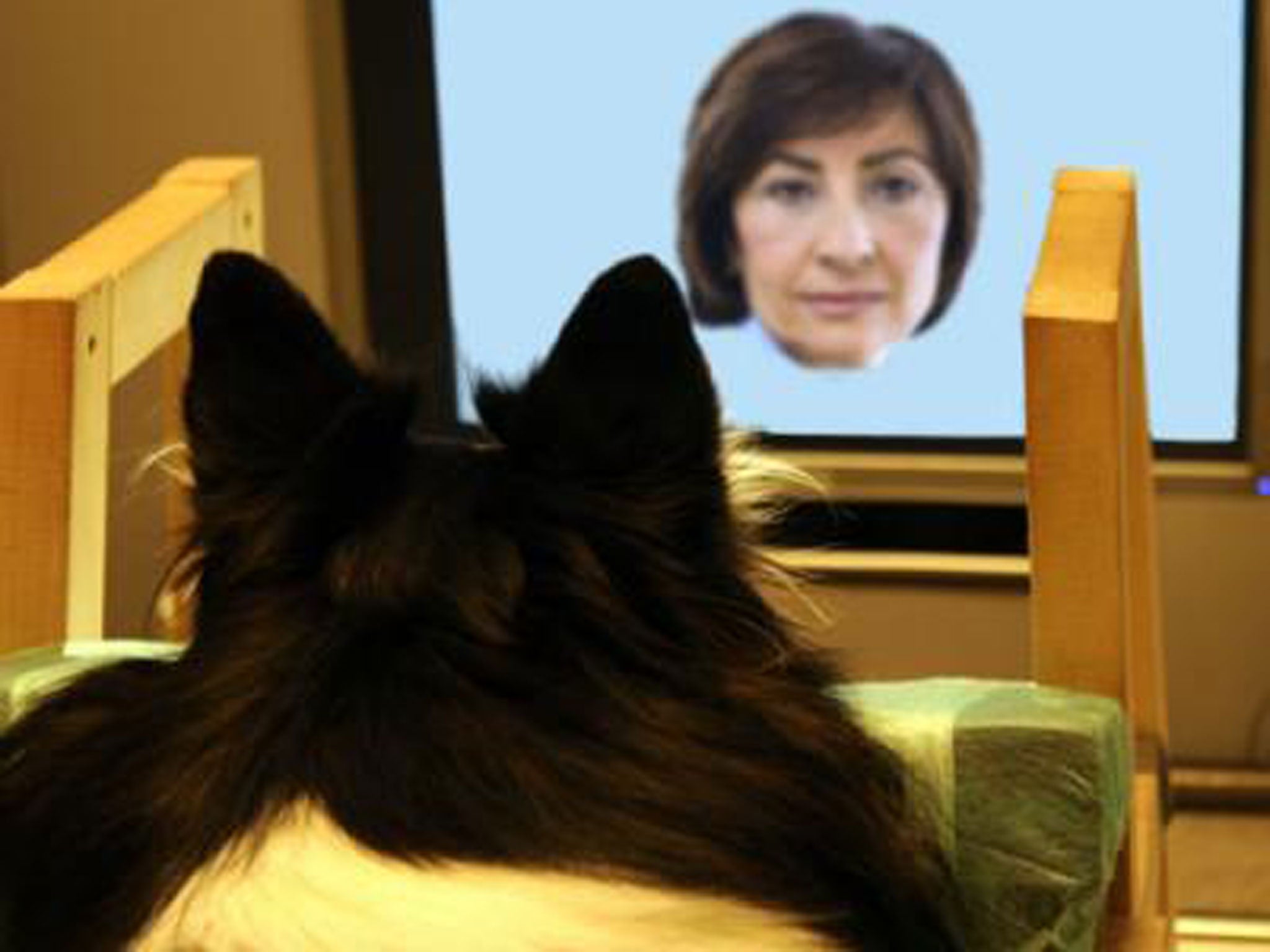The Independent's journalism is supported by our readers. When you purchase through links on our site, we may earn commission.
Dogs recognise their owners' faces - but prefer looking at other dogs
Dogs may have a similar facial recognition skills to those of humans

Good news for dog owners everywhere – your canine friend does recognise your face, according to new research.
However, it actually prefers looking at the face of another dog instead of yours, the research also found.
A team of researchers led by Professor Outi Vainio at the University of Helsinki designed an experiment to investigate the facial recognition of dogs by tracking their eye movement.
Humans have specific brain mechanisms involved in face processing, which focuses attention to faces and recognises the identity of it rapidly and accurately.
It had been assumed to be a quality that only humans and possibly primates possess.
To conduct their study, scientists placed a group of dogs in front of a computer screen showing images of their owners, strangers and other familiar and unfamiliar dogs. They then watched their eye movement to see where the animal was focusing.
Professor Vainio said: “Dogs' eye movements were measured while they watched facial images of familiar humans and dogs (eg dog's owner and another dog from the same family) being displayed on the computer screen. As a comparison, the dogs were shown facial images from dogs and humans that the dogs had never met."
When an image of their owner appeared on the screen, they were more likely to look directly into their eyes. In comparison, when an image of a stranger was shown, their gaze was less fixed and moved around the face.
But the majority of dogs preferred to look at the face of another familiar dog and were more likely to gaze at them for longer periods of time than humans or their owners.
Professor Vainio explained: “Dogs fixed their gaze more often on familiar faces and eyes rather than strange ones, i.e. dogs scanned familiar faces more thoroughly. The results indicate that dogs were able to perceive faces in the images.
“But dogs looked at images of dogs longer than images of humans, regardless of the familiarity of the faces presented in the images.”
In addition, part of the images was presented in inverted forms. Dogs viewed upright faces as long as inverted faces, but they gazed more at the eye area of upright faces, just like humans.
Their results, published in the journal Animal Cognition, suggest dogs might have facial recognition skills similar to humans.
Join our commenting forum
Join thought-provoking conversations, follow other Independent readers and see their replies
Comments